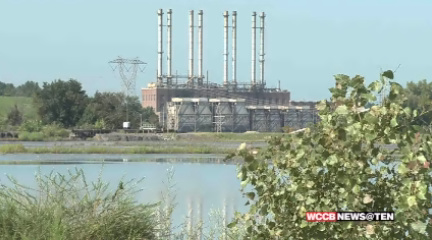Cementing the Future Through Coal Ash

[gtxvideo vid=”gTKAhGEV” playlist=”” pid=”Bbt3TRDe” thumb=”http://player.gtxcel.com/thumbs/gTKAhGEV.jpg” vtitle=”cement”]
CHARLOTTE, NC — Is there an upside to coal ash? Storing the toxic waste costs Duke Energy, and that cost is passed on in your bill. But some North Carolina businesses want to cement the future of coal ash to help the state grow.
“Very frustrating,” says Henry Batten. “Very frustrating.”
Batten is the president of Charlotte-based Concrete Supply Co. He says the concrete industry is chomping at the bit to buy up the bulk of Duke Energy’s controversial coal ash.
“We can consume, you know, 60 percent of it, maybe 70 percent, that they’re producing right now,” says Batten.
Coal ash is used to build roads, bridges and buildings. Tons of Duke coal ash is sitting in ponds in Charlotte and across the state, spilling into our rivers and costing billions of dollars to cleanup, contain and move. Some of that cost is passed on to customers. But Batten says it doesn’t have to be that way.
In other states across the Southeast, coal ash is reprocessed, the carbon burned out, and the resulting fly ash makes concrete that is more durable and safe.
“Put it in, in a powder form,” says Batten. “We manufacture that concrete. It comes out and it’s hardened. From now to eternity, you can break that concrete up. It has no environmental impact whatsoever.”
WCCB Charlotte reached out to Duke Energy.
A spokesperson says: “While we currently recycle about 43 percent of ash that’s produced at our plants, we see great opportunity to increase that amount.”
That percentage comes from Duke facilities in other states. For now, its sites in North Carolina do not repurpose the coal ash, even though a recent EPA ruling says it’s safe to do so.
It’s a process that Batten says wouldn’t cost Duke. In fact, it could make the company money.
“So it’s not like Duke is paying that,” Batten says. “We’re paying that as the buyer. So there has to be something in the economics that wants them to pursue a landfill, as opposed to resale.”
Duke Energy says it is actively exploring beneficial reuse options for its 14 sites in North Carolina, and taking proposals for that process through February 20th.




